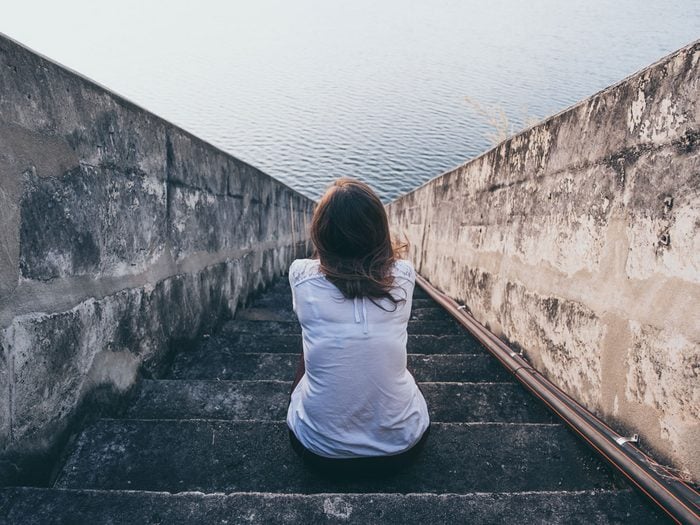
The sources of distress
What makes people prone to develop a mental health condition? Experts say it’s the tug between nature and nurture. “We do know that genetics plays a very big part,” says psychologist Deborah Serani, a professor at Adelphi University and author of Living With Depression. “You may be prewired for developing depression, or schizophrenia, or anxiety. [Sometimes] the switch that turns the genetics on has to do with environment.” So while not everyone who’s had a traumatic event or difficult childhood goes on to struggle with emotional health issues, many will. And there are times when our biochemical makeup and the stresses of life make us more vulnerable.
If you’re battling anxiety, these are some of the top tricks therapists recommend.
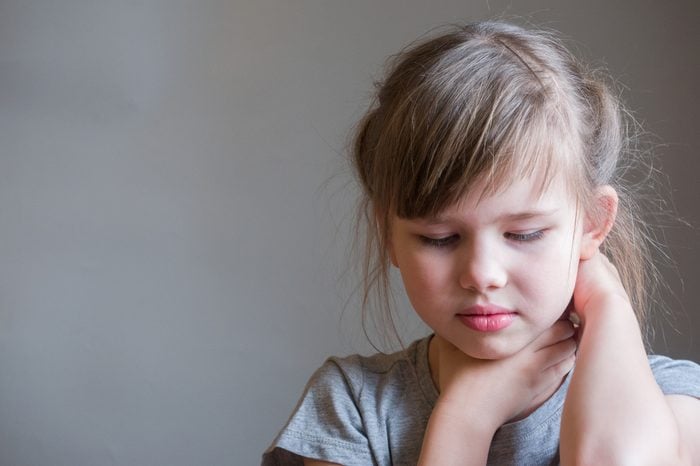
Children, preteens: Anxiety, especially fears
Kids have to learn how to navigate their world. If they have trouble with that, they can get anxious. “Children might struggle with shyness, being separated from a parent or being fearful,” says Jeffrey Cohen, a clinical psychologist at Columbia University Medical Center in New York City. And that might lead them to avoid the things that stress them out, like school or dogs. (Psst: These vitamins and supplements can help reduce anxiety.)
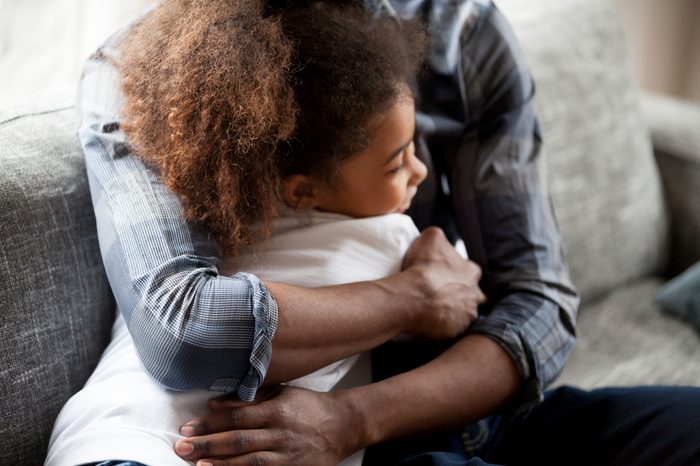
What helps children and preteens
Reliable support from parents and friends along with structure helps protect kids against unpredictability (which amps up anxiety), says Dr. Cohen. And learning how to cope with worries, whether kids pick them up from parents or Sesame Street, can be a protective factor too, he adds. For example, if your child is afraid of dogs, gradually expose him to pups—he can watch dogs play at a safe distance, pet small dogs when he’s able, and then work his way toward meeting bigger dogs.

Teenagers, 14 to 18: Anxiety, especially social anxiety
The brain doesn’t fully develop until you’re about 25, especially the executive function. That makes teenagers less able to handle their emotions, including anxiety. Teens also show signs of social anxiety—a fear—and sometimes avoidance—of social situations, says Dr. Cohen. “Adolescents think that everybody is watching them, but in fact, that’s not the case. So you often have teens who feel like they’re under a microscope or other peers are evaluating what they’re saying, what they’re wearing, and what they’re doing.” (In some cases, a medical condition may be triggering your anxiety.)

Helping teens deal with worries
Kids who’ve grown up with tech sometimes struggle to figure out social cues, says Serani. Reading is a good way to combat that. “Novels tend to show and not tell. It can be a great way for children to get better at understanding their own thoughts and feelings, and expressing their own thoughts and feelings,” she says. In fact, one study found that 12- to 15-year-olds who read for pleasure were more socially engaged thanks to the insights they gained into their lives and others’, according to research published in the Journal of Librarianship and Information Science.
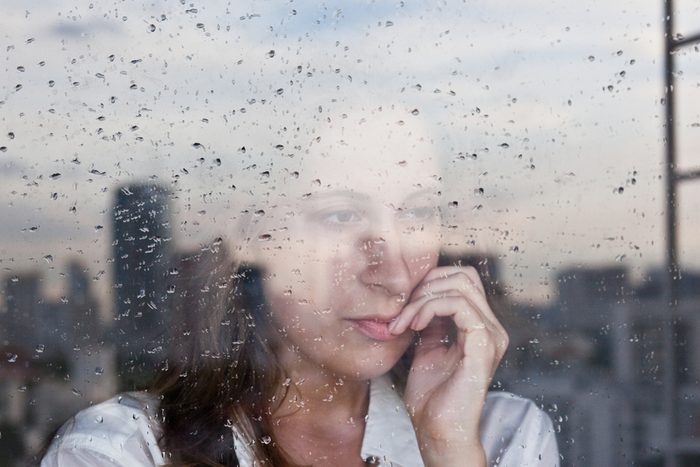
Emerging Adults (18 to 25): Anxiety, bipolar disorder, schizophrenia
“With some mental health conditions, in particular, psychotic disorders, I think there is a genetic or a biological component that can interact with a life stressor,” says Dr. Cohen. And a young adult’s developing brain can put them more at risk. Other behaviours, such as smoking marijuana or using illicit drugs, can trigger psychosis too, he notes. “We often hope that with the end of substance use, the psychotic symptoms go away. Unfortunately, that’s not always the case,” he notes.

What helps 18- to 25-year-olds
To prevent any triggers, stay away from illicit substances, including marijuana, and binge drinking if you know, via family history, you’re predisposed to schizophrenia and bipolar disorder, Dr. Cohen says. But if you’ve already been diagnosed, a healthy lifestyle can mitigate the effects of the illness, says Dr. Serani. That means eating well and getting enough sleep; a study published in The Lancet reveals that the more interrupted your sleep is, the more likely to have a bipolar or major depressive disorder—and more unstable moods. (Here are some other ways to manage your anxiety triggers.)
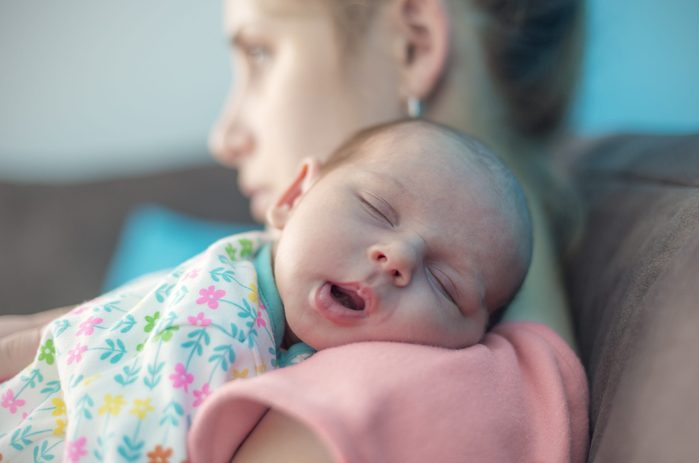
25- to 40-year-olds: Anxiety, depression, postpartum depression
In your 30s, depression may edge out anxiety. “Anxiety is an apprehensive future-oriented state characterized by ‘What if’ thinking. So younger people tend to be very future-oriented because they see most of their life as ahead of them. Depression is characterized by ruminative thinking. That’s when people are starting to see things that didn’t quite happen the way they wanted to,” says Dr. Cohen. Stressors, like losing a job, can also trigger depression, as can having a baby: About one in seven women and 10 percent of dads suffer postpartum depression.

What helps postpartum depression
“When we see postpartum depression and we do a thorough history, 90 percent of the time, we’re going to find that the woman has had depressive tendencies or an untreated depression before,” says Dr. Serani. That’s why the US Preventive Services Task Force recently recommended that at-risk women get cognitive-behavioural or interpersonal therapy, in groups or individually, to prevent it. Dietary supplements, including vitamin D and selenium, have also been helpful, though further research is needed, the recommendation found.

40s and 50s: Depression, suicide
Adults who are 40 to 59 years old have the highest rates of depression, especially women, according to the Centers for Disease Control and Prevention. This age group also has the highest rate of suicide, the American Foundation for Suicide Prevention found. Why? Well, a traumatic event (an accident or divorce) can trigger depression. So too can worrying about your adult kids (“Are they launching?”) and your parents (“Do they need more care?”) at the same time, notes Dr. Serani.

What helps in middle age
There are several protective factors. One is having supportive friends and family, says Dr. Cohen. Another is finding meaning, which is why volunteering is especially good for your mental health when you’re over 40, according to a study published in the British journal BMJ Open. And religion and faith-based activities can decrease depression and protect against suicide, studies have found.
If you find that your low mood lasts more than two weeks and interferes with your life, seek professional help. “Cognitive-behavioural therapy really teaches us to replace some of the less helpful thoughts with more helpful ones by looking at the evidence. So, for example, if I’m thinking I’m a failure, is that really true?” says Dr. Cohen.

60s: Depression, substance abuse
People in their 60s are more likely to have faced a depression-inducing event, like the death of a spouse. “It might also have to do with older people suffering physical illnesses associated with depression, such as strokes, cancer, or heart disease,” says Adam Rosenblatt, MD, director of geriatric psychiatry at the University of Maryland’s Upper Chesapeake Health, in Havre de Grace, Maryland. And once they retire, older adults may hit the bottle (or the bong) more often now that the demands of work aren’t restricting their bad habits. “Older bodies also cannot handle drugs and alcohol as well as they used to, so a level of consumption that was not a problem years ago may become a problem later in life,” notes Dr. Rosenblatt.
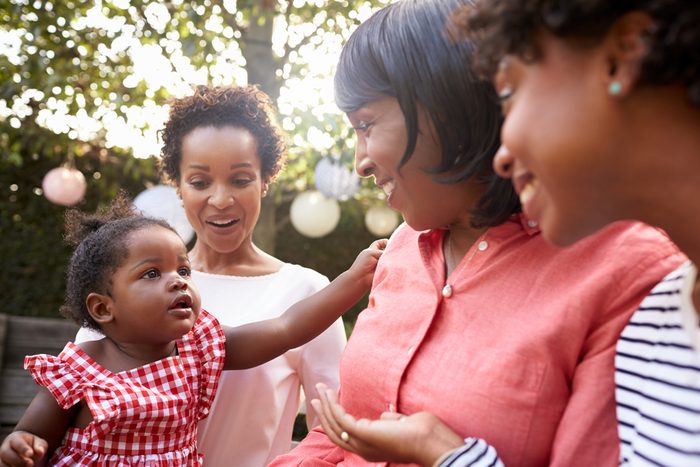
What helps in the 60s
The same protective factors that help middle-aged folks help those in their 60s: A supportive tribe, exercise, and a purpose in life. There’s some research published in the journal Cyberpsychology, Behavior and Social Networking that suggests that social media use—along with Facetiming, texting, and email—can also stave off loneliness and improve physical and mental health among those over 65.
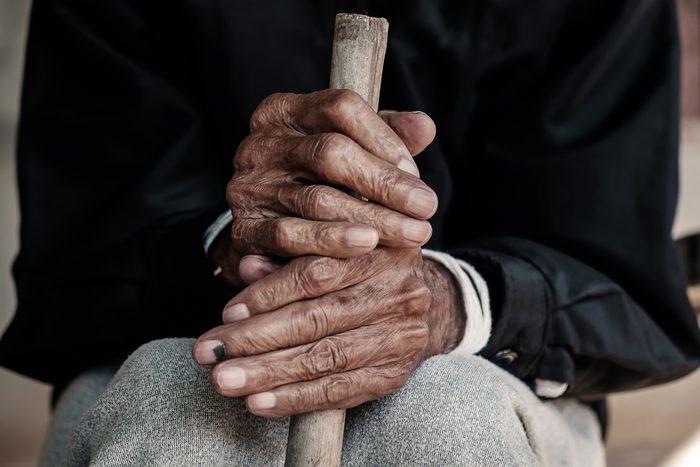
70s and beyond: Depression, dementia
Doctors can miss depression in the elderly because the symptoms—loss of appetite, sleep problems, low energy—can be similar to physical problems and illnesses, says Deborah B. Marin, MD, a geriatric psychiatrist at Mount Sinai Hospital in New York City. “As people get older, they have more medical problems and they may also have more social isolation,” she adds. And there is a relationship between depression in later life and dementia, which has other behavioural problems like irritability, anxiety, and paranoia as it progresses. “It is true that older people who have depression seem more likely to go on to have dementia than those older people who don’t. But whether it’s because when you’re becoming demented you become depressed or depression is a risk for developing dementia, isn’t clear,” Dr. Marin explains.

What helps in the 70s and beyond
Treating depression is key, says Dr. Marin. “Cognitive behavioural therapy is very good for mild to moderate depression,” she notes. Medication can also be effective. As for dementia: “There’s a large literature now showing that what’s good for the heart is good for the brain. So controlling blood pressure and cholesterol is important,” Dr. Marin says. “Lifestyle is very important: Staying active socially, continuous learning, exercise, and eating what’s called the Mediterranean or the DASH diet.” And if you notice your parents or grandparents have mild cognitive impairment, watch their alcohol intake. “Those folks, if they drink too much are more likely to become demented down the road,” she notes.
Medically reviewed by Ashley Matskevich, MD.
Next, learn how Canadians really feel about their mental health.
